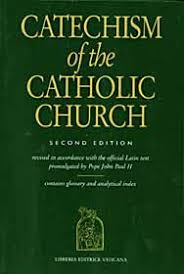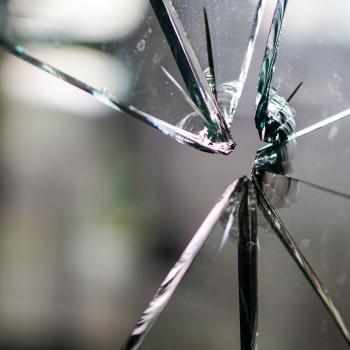I have decided to put my nerdy obsession with Catholic Social Teaching to good use and do a series of posts on social issues and the Church’s teaching on each.
First issue: the Death Penalty. This post is the first of three on the topic, and will present the Church’s teaching on capital punishment, or, in other words, the moral argument against it. The second post will focus on legal issues surrounding the death penalty (including the stories of those wrongfully imprisoned or executed). The third post will be stories from people who have had a loved on murdered, and opposed the death penalty for their loved ones’ killer.
On the sacredness of all human life: “Human life is sacred because from the beginning it involves the creative action of God and it remains forever in a special relationship with the Creator, who is its sole end.” (2258) In another place, “The deliberate murder of an innocent person is gravely contrary to the dignity of the human person…and to the holiness of the Creator. The law forbidding it is universally valid: it obliges each and everyone, always and everywhere.”(2261)
Ok, so it’s always and everywhere wrong for any person to kill any other innocent person. Obviously this encompasses a myriad of issues, including euthanasia, abortion, all other forms of murder, and any unjust killing in war. So how do we deal with someone who breaks the moral law and murders someone? The Catechism says: “In the Sermon on the Mount, the Lord recalls the commandment, ‘You shall not kill,’ and adds it to the proscription of anger, hatred, and vengeance.”(2262)
Whatever our response is going to be to people who commit murder, anger, hatred and vengeance had better not be part of it. The placement of the next section is very important for understanding the development in Church teaching on capital punishment. In the Catechism, discussion of the death penalty is placed in context of legitimate defense, not under the requirements of justice. What is legitimate defense?
“The legitimate defense of persons and societies is not an exception to the prohibition against the murder of the innocent that constitutes intentional killing. The act of self-defense can have a double effect: the preservation of one’s own life; and the killing of the aggressor…the one is intended, the other is not.” (2263)
In other words, if a person, acting in self-defense, kills another, they have not violated the moral prohibition against killing. Legitimate defense is not only a right, but is a responsibility that must be taken up by society for the promotion of the common good. “The defense of the common good requires that an unjust aggressor be rendered unable to cause harm. For this reason, those who legitimately hold authority also have the right to use arms to repel unjust aggressors against the civil community.” (2265) Hence the legitimate existence of prisons and the just war theory (which are topics for another post).
The next paragraph in the Catechism goes on to talk about the death penalty specifically, in the context of legitimate defense. “Assuming the guilty party’s identity and responsibility have been determined, the traditional teaching of the Church does not exclude recourse to the death penalty, if this is the only possible way of effectively defending human lives against the unjust aggressor.“(2267)
This presents some excellent points for consideration when looking at the US death penalty system. “Assuming the guilty party’s identity and responsibility have been determined…” is a big IF. Since 1976, when the death penalty was reinstated, over 100 people have been exonerated from death rows around the country. I will be dedicating a specific post to this particular aspect of capital punishment. Moving along…
The Catechism then continues its treatment of capital punishment by saying: “If however, non-lethal means are sufficient to defend and protect safety from the unjust aggressor, authority will limit itself to such means, as these are in keeping with the concrete conditions of the common good and more in conformity with the dignity of the human person.”(2267) Basically, if you live in a society that has a prison made of anything stronger than a grass-hut, and if you live in a place that has the possibility of removing criminals from society while keeping them alive, then that is what ought to be done.
And finally, the Catechism closes it’s treatment of the death penalty by saying, “Today, in fact, as a consequence of the possibilities which the state has for effectively preventing crime, by rendering one who has committed an offense incapable of doing harm – without definitively taking away from him the possibility of redeeming himself – the cases in which the execution of the offender is an absolute necessity, are very rare, if not practically non-existent.”(226)
To sum up, the Church’s teaching regarding capital punishment is that it is not morally wrong in certain circumstances, but that the only circumstances that merit it’s use are those in which there is no other way to keep society safe from the unjust aggressor.
Or, as Pope John Paul II said, “The use of the death penalty in our society is both cruel and unnecessary.”












